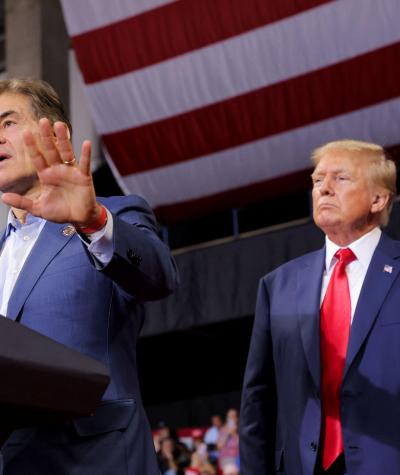When Congress passed the Bipartisan Campaign Reform Act of 2002 (“BCRA”), the new law closed a loophole previously used to inject “soft money” — money that isn’t subject to federal contribution limits, source prohibitions, and reporting requirements — into federal elections. That’s essential to maintain transparency and combat corruption in our elections.
Among other things, BCRA (which is sometimes referred to as McCain-Feingold) prohibits federal candidates and officeholders, their agents, and any entities (such as political committees) that they “directly or indirectly establish, finance, maintain, or control” from soliciting, receiving, directing, transferring, or spending “soft money” in connection with a federal election.
Even with the astronomical growth of “independent” spending on elections, through outside entities like super PACs and 501(c) dark money groups, in the wake of the U.S. Supreme Court’s 2010 decision in Citizens United v. FEC, the BCRA soft money prohibitions remain a key bulwark against federal candidates and officeholders using soft money to campaign for office.
In fact, in a 2011 advisory opinion, the Federal Election Commission (FEC), the federal agency tasked with administering and implementing federal campaign finance laws, specifically rejected the notion that federal candidates could solicit unlimited contributions, including money from corporations, on behalf of super PACs (which can legally accept unlimited contributions and corporate money).
The FEC made clear that even though, after Citizens United, federal contribution limits and prohibitions don’t apply to super PACs, they do apply to federal candidates fundraising on super PACs’ behalf.
But that position is being tested anew.
Since leaving office, former president Donald Trump has continued touring the country and raising massive sums of money from his political supporters, primarily through his leadership PAC, Save America.
To date, Save America has raised more than $107 million, and it has spent over $68 million through transfers to other candidates and committees, along with paying for Trump’s travel and staging rallies, and footing the bill for Trump’s legal defense in a variety of civil and criminal matters.
Recent developments appear to indicate that the remaining $39 million of Save America’s funds will be used as a war chest for Trump’s 2024 presidential campaign.
In early October 2022, Save America made a $20 million contribution to Make America Great Again, Inc. (“MAGA Inc.”), a super PAC formed by Trump associates for the stated purpose of supporting Trump’s picks for Congress in the 2022 midterm elections, and eventually backing Trump’s 2024 presidential campaign.
Within days of Save America’s massive contribution, MAGA Inc. began spending millions of dollars on the 2022 midterms. To date, MAGA Inc. has spent over $11.9 million on independent expenditures to help elect Trump-backed candidates around the country.
The problem is that Save America’s contribution, along with MAGA Inc. spending the money to influence the 2022 midterms, violated federal law and injected a huge amount of soft money into our federal elections.
For starters, Trump was already a federal candidate when Save America gave MAGA Inc. the $20 million, far more the $5,000 per year that a leadership PAC like Save America can legally contribute to another committee.
Trump became a federal candidate when he decided to run for federal office and raised or spent more than $5,000 in support of his candidacy.
Trump’s public statements show that by early 2022, he had decided to run for president and was simply delaying announcing that decision to avoid the campaign finance rules applicable to federal candidates. And he has clearly raised and spent far more than $5,000 through Save America to advance his candidacy.
Because Trump was a federal candidate when Save America — an entity that Trump directly or indirectly established, financed, maintained, or controlled — contributed $20 million to MAGA Inc., he and Save America blatantly violated BCRA’s soft money prohibition.
When federal candidates evade campaign finance laws by spending soft money to influence federal elections, our election system — and the values of transparency, accountability, and anticorruption that it relies on — are undermined.
Campaign Legal Center (CLC) has therefore filed a complaint with the FEC, urging the agency to enforce the law and uphold the transparency and accountability that is integral to our election system.

